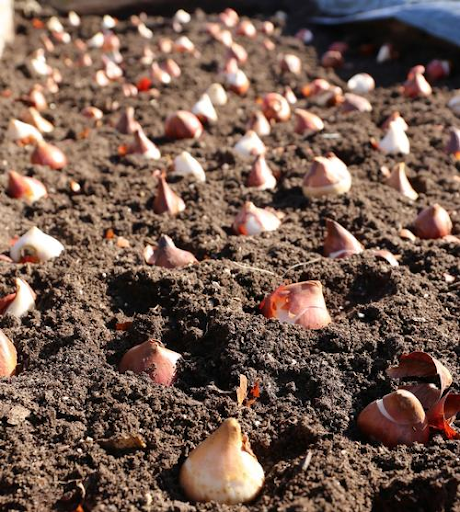Is Winter Actually The Best Time to Plant in North Carolina?
Surprising but true! Winter can be a hidden gem for planting in North Carolina. It may seem counterintuitive, but this colder season can provide advantages for both you and your plants. Here are some of the most common questions answered to help you make the most of this winter planting window, along with a few extras:
Q: Won't my plants freeze?
A: Many plants are surprisingly adaptable and can thrive even in the cooler months. Choose cold-hardy varieties that are known to flourish in North Carolina’s mild winters. These plants have developed natural defenses against frost and can even harness the benefits of winter dormancy. With North Carolina’s winters, typically we don’t get cold enough to freeze plants to death. Generally, the soil temperature is 10-15 degrees warmer than air temperature meaning the roots (the heart of the plant) stays safe in mild freezing temperatures. Once the sun has risen, the heat greatly helps melt frozen dew, ice, and snow and will also raise soil and ambient temperatures dramatically. Mulch will also raise soil temperatures to avoid any frost damage. Dark colored mulch works best.
Q: Why is winter better for planting?
A: Winter offers several perks for planting:
Reduced stress for plants: The cooler temperatures and gentler weather create less stress on plants as they establish themselves. Plants are very stressed during our warmer months because of flowering, rapid growth, and heat stress.
Optimal soil conditions: Winter rains often leave the soil moist and workable, making it easier to dig and plant.
Decreased competition: Weeds and pests are less active in winter, giving your plants a head start without unwanted competition.
Spring readiness: Plants established in winter are often healthier and more vigorous come spring, ready to burst into bloom and growth.
Q: What kind of plants should I plant in winter?
A: Many trees, shrubs, perennials, bulbs, sod, and even some vegetables can be planted in winter. Popular choices include:
Trees and shrubs: Maples, oaks, dogwoods, hollies, camellias, azaleas, and witch hazels.
Perennials: Pansies, violas, snapdragons, dianthus, hellebores, bulbs, and ornamental kale and cabbage.
Vegetables: Kale, collards, spinach, lettuce, peas, broccoli, and garlic.
Sod: Bermuda, Centipede, Fescue, Zoysia
Q: Do I have to water less frequently in the winter?
A: Potentially, but surprisingly, winter watering is just as crucial as summer watering. While plants may not need as much water as they do in the heat, they still require consistent moisture to survive. Although, plants will retain water better in winter because evaporation and transpiration rates are lower in colder temperatures. Aim to water deeply but less frequently, focusing on the soil directly rather than the leaves.
Q: When is the best time to water the plants in winter?
A: The best time to water in winter is during the warmest part of the day, typically in the afternoon. This allows the water to soak into the soil before the coldest temperatures hit at night, minimizing the risk of freezing.
Q: Should I mulch around my plants during winter?
A: It's a great idea to protect your plants roots during the cooler months with mulch. Mulch helps retain soil moisture, regulate temperature, and insulate the roots from extreme cold.


